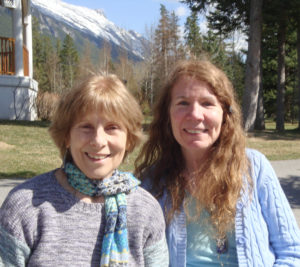Mutuality
We encourage practicing mutuality by…

Sugandhi Katharine Barnes
In the Trillium community, mutuality is a relationship disposition that holds both self and others as unique expressions of Being. In our work, it is practiced by people on the path of embodied awakening who find themselves drawn to experience unprecedented depth of connection.
- Holding self and others as mysteries we can at best know only partially over time
- Consciously holding the tension of the differences between our perspectives and those held by others
- Listening deeply with the intention of feeling the other and honoring the logic of their being
- Speaking our truth with sensitivity to our impact on the other
- Learning when to speak and when to be silent as others find safety to relate with deeper feeling
- Taking appropriate responsibility and apologizing when we discover we’ve hurt others
- Negotiating agreements and setting boundaries as needed to support safe and harmonious mutual exchanges
Mutuality does not mean…
- Encouraging people to be more social than they prefer
- Dividing sharing time equally
- Waiting until everyone feels good before ending conversations
- Always feeling safe
- Being expected to lean into deep engagement
- Expecting or pressuring others to drop into deep or intense feeling states
- Requiring others to welcome or greenlight your words or actions
- Valuing “radical honesty” over being attuned to others
The Value of Mutuality
The practice of mutuality is not formulaic, and will not prevent or solve all relationship issues. But in our experience, when practiced over time with those you care about and who care about you, it brings deep healing to our patterning and remarkable intimacy that is mutually empowering.
Ultimately, mutuality is the realization that self and other are both aspects of Being. As this awareness becomes deeply embodied, it becomes obvious that honor and compassion toward self is honor and compassion toward others. Through practice, increasing skill is gained, and one finds more confidence in relating—for both mutual nourishment and the deeper self-awareness that comes from seeing yourself through the other’s eyes.
Essays:
Here are some essays by Trillium teachers for you to enjoy.
“Guidelines for Practicing Mutuality”, CC Leigh
“Guidelines for Listening and Reflecting”
“Where Are We Now with Mutuality,” Fax Gilbert
“Mutuality Circles: A Source of Companionship and Transmission,” Sanji Hills
“Divine Mutuality,” Fax Gilbert
“Real Life Mutuality,” CC Leigh
“Daring Mutuality,” Krishna Gauci
“Guidelines for Conflict Resolution”
Videos
We have created some video resources specifically for peer-based Mutuality Circles.
Guidelines for Practicing Mutuality
Relational Mutuality ~ aka Coconut Yoga
Mutuality Circles ~ Tips for Successful Online Groups
Mutuality Circles ~ The Value of Being in an Online Group
Mutuality Circles ~ Reflection Skills for Peers
Mutuality Circles ~ Tips for In-Person, Peer-Based Meetings
Mutuality Circles ~ The Value of Being in a Peer-Based Circle
Conflict Resolution
If you’re experiencing conflict with another member of our community, including a mentor or teacher, we recommend you take appropriate steps to resolve it. If you are unable to reach resolution, assistance is available from one of our mediators.

